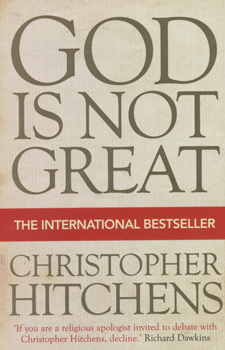“ספר של כריסטופר היצ'ינס, עיתונאי וסופר שנפטר לפני שנה, כתב ספר מעניין זה על אוזלת ידה של האמונה הדתית.
הכתיבה פולמוסית, מבוססת-מדעית ומושחזת. הסופר בילה שנים (כל חייו, לדבריו) בניסוח האמירות. הוא רואה באמונה הדתית שייר של תקופה פרימיטיבית בהתפתחותו של האדם, בעיקרי האמונה - גיבוב של שטויות, בהסברים הדתיים לגבי ההוויה של העולם - שיקוף של חוסר הידע של מי שכתב את הדברים, את המוסדות הדתיים כתמצית הרו”







